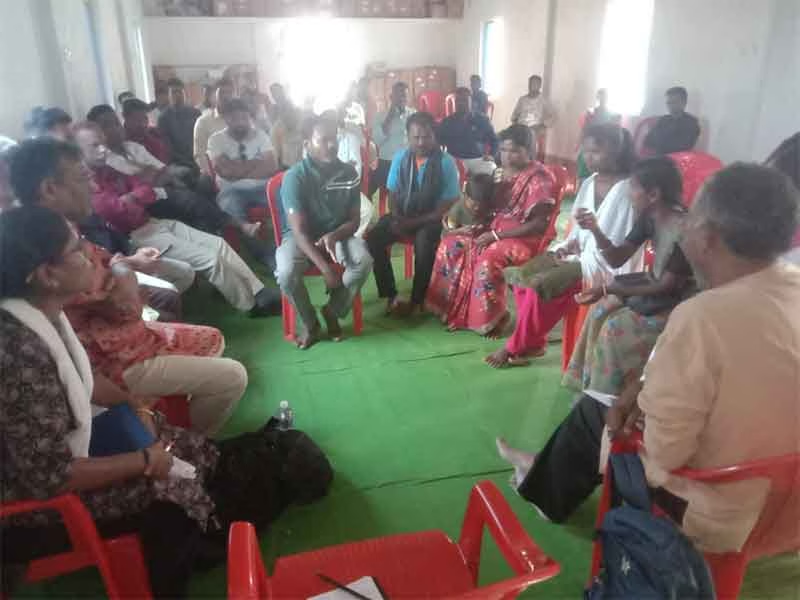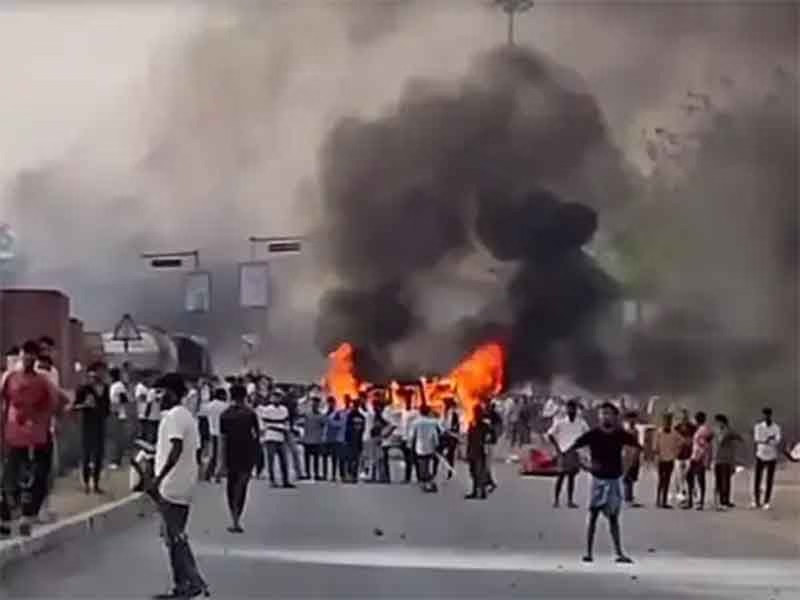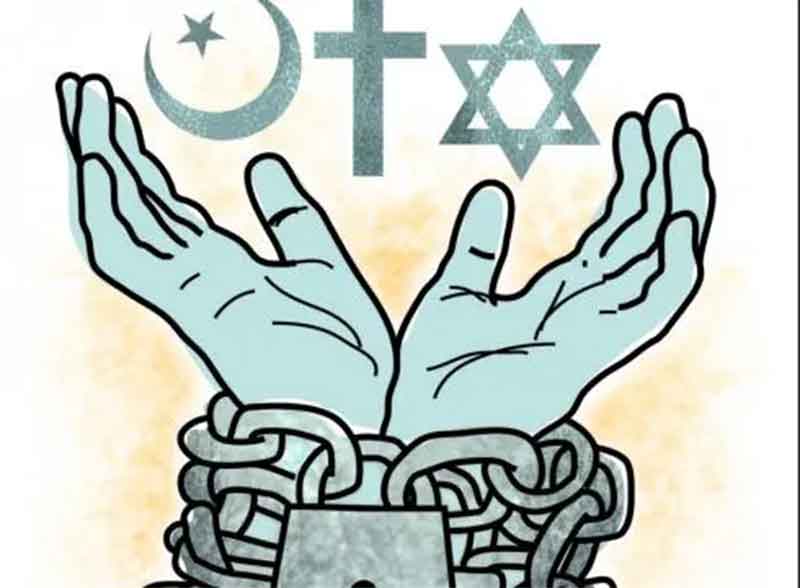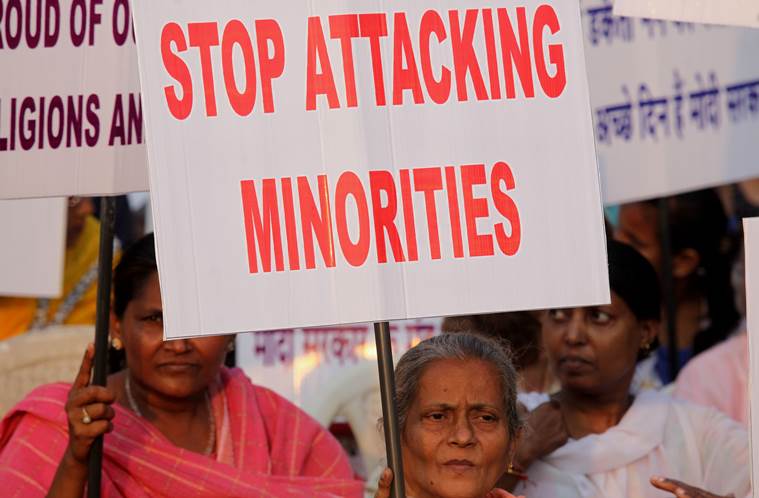
six members of lawyers’ team heard the testimonies of the allegations of burial denial, religious functions and intimidations of boycott from village community under Raibania police station in Balasore District on 15th March 2025.
The team consists of Clara D’Souza, Sujata Jena, Gitanjali Senapati, Sophia Mariam, Balthazar and Ajaya Kumar Sigh interacted with the community leaders and intimidated villagers.
Chronology of intimidations and harassment
18/12/2024: Denial of burial of tribal Christian
The triggering point of the unrest was the stoppage of dead burial of Budhia Murmu, a local santal tribal Christian by anti-social people from other faith under the banner of Sarna Majhi/Majhi Pargana on the plea that the burial was against their traditions; hence would not be allowed. It took over 12 hours to bury the dead amidst tensions and arguments. The tribal Christians were shocked to discover for the first time such threats and intimidations from their fellow tribals over the burial of their relatives, custom for generations. The burial issue further escalated to series of threats and boycotts.
23/12/24: Police visits Parish Church
Local Police visited the Parish Church, searched for the Priest, the one conducted burial rites. The Police informs that there are complaints against the priest. The police asked the priest to produce caste certificate and visit the police station. The priest is yet to know the contents of the complaints nor received any complaints.
24/12/2024: Officials call two groups for a meeting
The Police called two groups to sort out the issues. The issue was not resolved as the second party did not turn up
26/12/24: Executive Magistrate summons both groups
Executive Magistrate, Jaleswar summons for both groups based on Raibania IIC, report summoned both parties as per FIR No. 74/24 whereby 2nd party has caused mischief
28/12/24: Shudhi Rituals for the dead person in face of altercation & tensions
Shudhi Rituals (Requiem Mass) Programme held amidst police presence despite miscreants trying to disrupt it
17/02/25/904: Tahasildar Notice (904): Letter to Sub-divisional police officer, Jaleswar
Tahasildar directed the subdivisional police officer, Jaleswar to be present on 24th February 2025 to discuss the issue of Majhi Pargana.
24/02/25: Both groups could not arrive at common understanding.
present join the meeting. Christian Adivasi raised the right to bury their dead as before while Majhi Paragan insisted that the Christian Adivasi have no burial ground rights as per the Constitution. The issues remain unresolved.
27/02/25: Disruptions of Prayer Services (Holy Mass)
Prayer Services (Holy Mass) was disrupted by group belonging to Majhi Pargana. However, police facilitated the completion of prayer services. Dudhia Khali villagers filed a complaint against the anti-social elements of the group under Raibania PS in Balasore District.
Media Role in Escalating the Hate Campaign
A few local dailies played villain role in escalating the Hate Campaign against Christians Tribals. Each time, Adivasi Christians obliged to meet the officials summoned by local police, Tahasildar and even Executive Magistrate each time; however, the miscreants elements of Majhi Paragan did not join to sort out the differences except for one ordered by the Executive Magistrate. However, the group got emboldened with a couple of local daily newspapers with misrepresentation of facts in a series of articles over two months alleging the Christian Adivasi destroying the traditional Adivasi culture by embracing a certain religion. The group claims it was against village tribal culture and violates 13(3)A of the Constitution of India. The Adivasi Christians have embraced over third generations; yet daily sparks of controversies as a new conversion each time a prayer service held in the villages around region.
Our Observations:
The spurt of hate campaign and conflicts against Christian religious minority could be attributed to recent Supreme Court Judgement dated 27th January 25 in which Ramesh Baghel’s appeal against High Court verdict, Justice Nagarathna said that the state’s stand violated articles 14 and 21 of the Indian constitution pertaining fundamental rights of equality and non-discrimination and right to life and liberty betraying the sublime principle of secularism too. However, Justice Sharma accepted the plea of the state that the burial ground exist 20 km away.
The split judgement is in the backdrop of Chhattisgarh high court has ordered that tribal Bastar region’s panchayat resolution passed last year, imposing ban on non-Hindu religious missionaries, won’t come in the way of exercising fundamental right to preach and propagate religion in its 14th October 2015 judgement. The bench of Justice Manindra Mohan Shrivastava passed the order while hearing a writ petition filed by Chhattisgarh Christian Forum and others challenging constitutionality of resolution adopted by panchayat bodies banning non-Hindu religious missionaries in their areas. Chattishgarh Christian Forum had moved high court in Bilaspur after a number of gram panchayats in tribal Bastar region passed resolutions at gram sabha, quoting provisions of Section 129 (G) of Chhattisgarh Panchayat Raj Act, banning “non-Hindu religious propaganda, prayers and speeches in villages”
In bizarre and sad tale of events, four Christians were forced to become Hindus to bury the head of their family members, Mr Kesab Santa, 70; a condition the hindu villagers insisted to allow burial in Siunaguda village in Nabarangpur district of Odisha. He had died on 2nd March 2025. There were 3 Christian families among 30 hindu families in the village.
Subscribe to Our Newsletter
Get the latest CounterCurrents updates delivered straight to your inbox.
The change of guard in the Odisha state has worsened the situations for the religious vulnerable sections.
Team Suggestions for communal harmony and peace in the state
- The state promote peace and communal harmony among all sections of the society and assure the religious minorities in particular
- The district administration should check anti-social elements creating division in the name of caste and creed and take to task the conflict instigators
- The District Administration should have eyes on the local daily newspapers stoking misleading and misrepresentation of facts; creating ill-will among the communities publishing false information
- There should be sustained dialogues among the communities to sort out the differences and accepting each other’s faiths and cultures.
- The State/District Administration undertake para-legal training to promote constitutional values and secularism















































